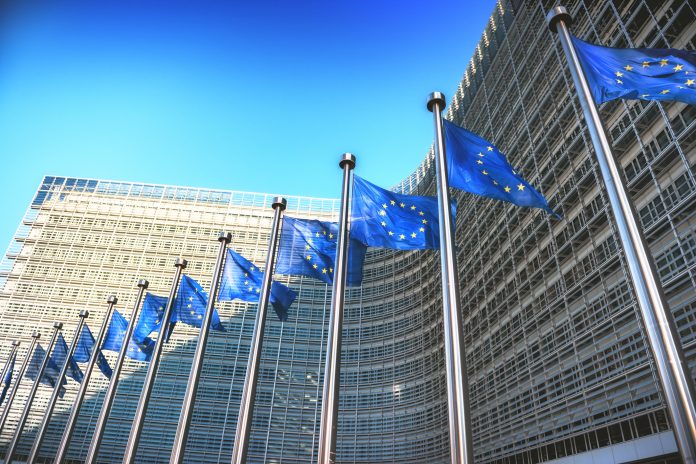Investing nearly €2 billion from their Digital Europe Programme, the European Commission aims to strengthen their digital solutions to benefit citizens and businesses
Adopting three work programmes for the Digital Europe Programme, the Commission outlined the objectives and specific topic areas that will receive a total of €1.98 billion in funding.
The Commission’s goal is to commence ‘Europe’s Digital Decade’, which they say will strengthen Europe’s technological sovereignty and bring digital solutions to market for the benefit of citizens, public administrations, and businesses.
Where will the digital transition funding go?
The first, main work programme focuses on investment in artificial intelligence (AI), cloud and data spaces, quantum communication infrastructure, advanced digital skills, and the wide use of digital technologies across the economy and society. Worth €1.38 billion, this programme will be in the works until 2022.
Following this, the Commission published two other specific work programmes. The first focuses on funding cybersecurity in the sector, with a budget of €269 million until the end of 2022; and the second focuses on the operation of the European Digital Innovation Hubs network, with a budget of €329 million, until the end of 2023.
Margrethe Vestager, Executive Vice-President for a Europe fit for the Digital Age, said: “With the Digital Europe Programme, we are building secure and sustainable digital infrastructures. We are also enabling businesses gain better access to data or use solutions powered by artificial intelligence.
“The programme also invests to ensure that Europeans can get the right skills to actively participate in the labour market. The aim is that everyone in Europe – citizens, businesses and administrations – can benefit from market-ready technological solutions.”
What is included in the main work programme?
- Additional common data spaces – such as data spaces for manufacturing, mobility and finance – to facilitate cross-border data sharing for businesses. This will include small-medium size businesses (SMEs), start-ups, and the public sector, as well as the creation of a federated cloud-to-edge infrastructure and services, for instance, a pillar of digital solutions to ensure secure data flows.
- AI-based data facilities and buildings for solutions to boost the use of trusted AI (including use by SMEs and start-ups). Responding to key societal challenges, including climate change and sustainable healthcare. This could be used to for example, to deploy AI testing facilities for health and smart cities and communities.
- High resilience against cyber-attacks through deployment of a secure quantum communication infrastructure for the EU (EuroQCI)
- Delivery of master courses in key advanced digital technologies to boost digital skills in Europe, including actions such as the Digital Crash Courses for SMEs, as announced in the 2020 Skills Agenda and SME strategy
- Set-up, operations and evolving and continuous maintenance of digital services supporting cross border interoperability of solutions in support of the public administrations (e.g. European Digital Identity).
‘Focused on bringing digital technology to businesses and citizens’
This work programme for cybersecurity will have improved investments to establish advanced cybersecurity equipment, tools, and data infrastructures. It will fund development and skills related to cybersecurity, as well as promote and share knowledge of best practices, ensuring wide deployment of cybersecurity solutions across the European economy.
To complete these aims, the Digital Europe Programme will deploy a network of European Digital Innovation Hubs to offer access to technology testing and support the digital transformation of private and public organisations across Europe, including government at national, regional or local level, as appropriate.
These Digital Innovation Hubs will assist EU policies, such as industrial policy and the policy for small and medium businesses and start-ups. This aims to support companies and the public sector in the twin green and digital transitions.
The Digital Europe Programme is to be published by the end of November, with the work programmes to be implemented mainly through grants and procurement. It will fast-track economic recovery, and shape the digital transformation of Europe’s economy.
Thierry Breton, Commissioner for Internal Market, added: “This is Europe’s Digital Decade. By 2030, data, cloud, edge, and quantum computing will drive industrial and societal innovation, creating new business models.
“The €2 billion investment announced today enables European companies – of all sizes and notably startups – to seize opportunities in fast-growing markets. It will also empower European citizens with the skills needed to thrive in a safe digital environment. This strengthens our technological sovereignty.”











